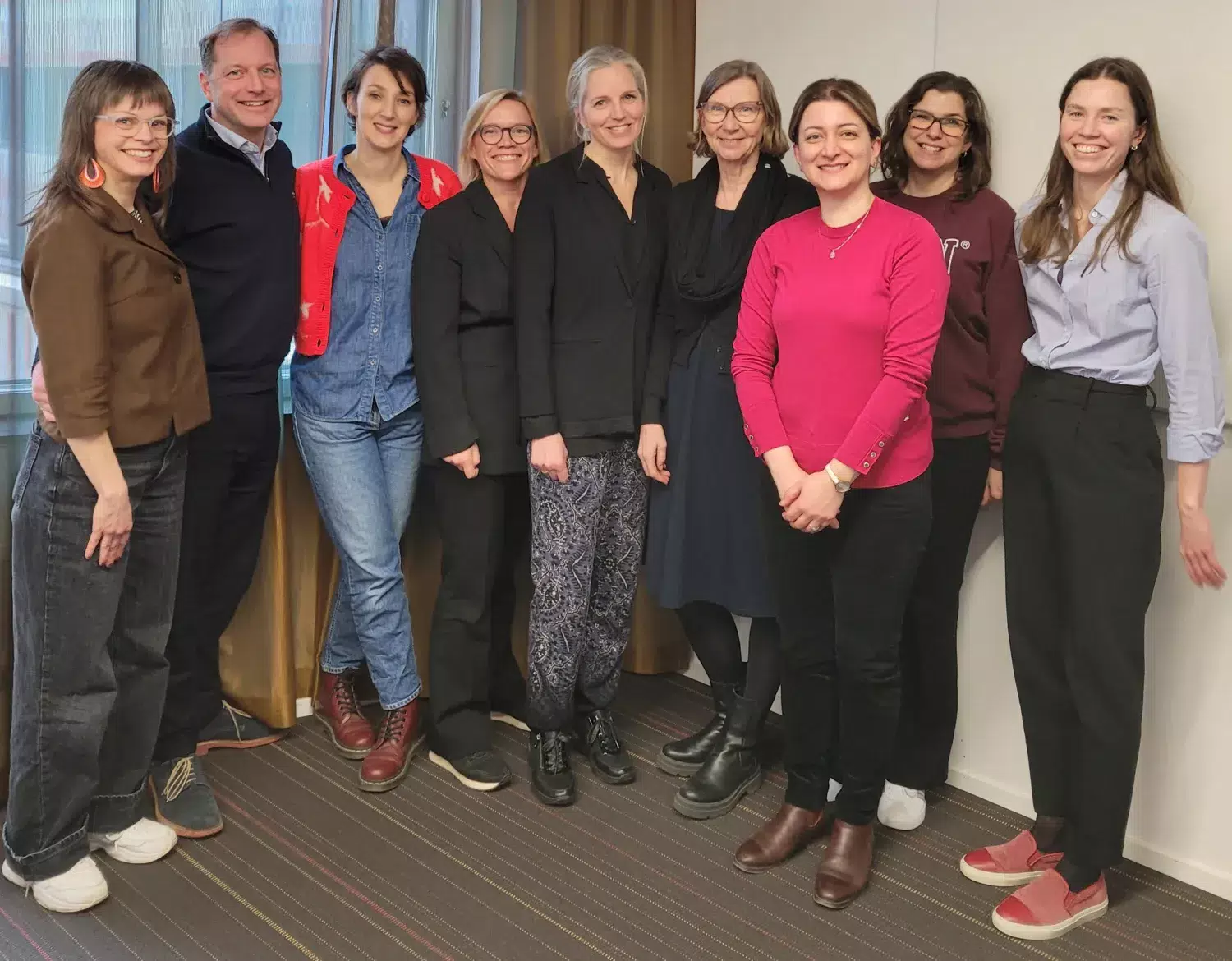The course “Medicinpedagogiskt utvecklingsprojekt: en fördjupningskurs” supports teachers’ professional development and stimulates an academic approach to the scholarship of teaching and learning.
At KI it is desirable that teachers have at least 10 weeks of higher education training, which means that there is an increasing need for continuing courses for those teachers who do not meet the requirements.
At the same time, many teachers have their own ideas for educational projects they want to implement but are hindered by the fact that it can be difficult to find time, the right support and context.
Since research shows that to further change in the workplace, the outcome is often more successful if several persons within the workplace attend a course together, the “Medicinpedagogiskt utvecklingsprojekt: en fördjupningskurs” was created.
Medicinpedagogiskt utvecklingsprojekt: en fördjupningskurs
Medicinpedagogiskt utvecklingsprojekt: en fördjupningskurs is a continuation course where the participants work on their own projects, together with their colleagues!
Six participants at LIME have taken the course and completed projects and six people from LIME, but with at least 10 weeks of higher education, were supervisors. To further promote networking and knowledge exchange, the course participants were divided into pairs by the course leaders.
The course has been running for 8 months with seminars, joint meetings, project briefings, etc. and ended with the participants presenting their projects during a day at LIME (April 24, 2024).
Participants thoughts
We asked two participants to share a bit about their projects and what they thought about the course.

Photo: Marie Lind
, Statistician at the Medical Statistics Unit at LIME.
In my project, I evaluated the statistics teaching in one of our MedStat courses, “Intermediate Medical Statistics: Regression Models,” at the advanced level. My proposal focused on implementing the adjusted PBL approach to developing ‘statistical literacy,’ considering how the goals of statistics teaching can be shifted towards the development of statistical literacy and a focus on establishing a balance between the theory and application parts.
Being familiar with other instructors and the other courses at LIME allowed me to learn more about different disciplines in KI. Moreover, I had the opportunity to share my challenges and receive professional and scientific suggestions from LIME’s colleagues.
, Assistant Senior Lecturer at the Unit for Bioentrepreneurship at LIME.
My project was about learnings and value creation in the collaboration between academia and industry, through the practical placements we have at our master program, MBE. Hopefully the insights could be applicable to other programs at KI where they include internships, like VFU, since key factors for collaboration between stakeholders could be similar no matter on subject studied.
Working with others at LIME was a good part. You get to know more in details what others are doing and also who they are as persons. I think this is one way to also find potential collaboration regarding education. So that was the best part in a sense, meeting, questioning, and discussing pedagogics and learnings, like we did in the KI-seminars. We could have had more of that, since exchanging ideas and knowledge helps us all forward.
Participants
- Susanna von Holst – Academia and industry co-production through Practical placement – an educational and value creation perspective
- Pamela Mazzocato – Research-based evaluation of a leadership program for senior leaders in health care
- Azadeh Chizarifard – Modified PBL approach in the “Regression course”
- Carl Savage – Becoming Deliberately Developmental
- Hanna Jansson – The ‘troublesome’ bioentrepreneurship
- Lisa Smeds Alenius
Supervisors
- Juha Nieminen
- Angelica Fredholm
- Madelen Lek
- Mia von Knorring
- Jayne Alfredsson
- Anna Bonnevier
Course leaders
&
ABOUT THE COURSE
The course has been delivered in collaboration with Stockholm University and Teaching and Learning (TL) to support teachers’ professional development and stimulate an academic approach to the Scholarship of Teaching and Learning. Six LIME teachers and six LIME supervisors have been learning together during the year and increased their formal competence in teaching (as part of the requirements for many KI roles and positions).







